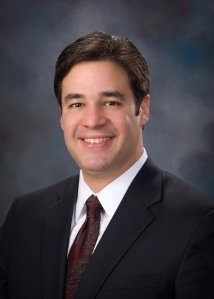What's going on behind closed doors?
 For
several years my colleagues in the House of
Representatives have introduced legislation that
would bring greater transparency to the Federal
Reserve. Most well-known are the tireless
efforts of Congressman Ron Paul and his call to
audit the Fed.
For
several years my colleagues in the House of
Representatives have introduced legislation that
would bring greater transparency to the Federal
Reserve. Most well-known are the tireless
efforts of Congressman Ron Paul and his call to
audit the Fed.Since its beginning, the Federal Reserve has never undergone a strategic audit and has never been held accountable for its actions. It has set monetary policy behind closed doors.
With the severe devaluation of our currency, it’s time to ask what’s going on behind those doors. While the Fed’s actions are not subject to approval by the president or Congress, the system itself is subject to congressional oversight.
That’s why early in my term I cosponsored H.R. 459, the Federal Reserve Transparency Act of 2012.
On Wednesday, July 25 this bill passed the House of Representatives with my full support.
This bill will require the Government Accountability Office to complete a thorough audit of the Federal Reserve’s activities and submit a report to Congress within a year of the legislation’s enactment. It gives teeth to the GAO’s ability to perform an audit by lifting restrictions placed upon that department.
The lack of transparency is a concern to both parties and the bill was overwhelmingly approved by a vote of 327 to 98.
Transparency and accountability are the bedrock of our nation’s financial integrity.
When our government distances itself from these principles, it becomes the responsibility of the people’s elected representatives to step in and reverse the trend.
From the day I took office, I consistently heard from Idahoans about their frustrations with the Federal Reserve system. Your calls and letters helped me gauge with great clarity the impact unmonitored decisions by a secretive agency will have on our economy.
There is no reason why Congress should not have more open access to the decision making patterns of the Federal Reserve. The consequences of these decisions are felt by all Americans—from a family trip to the grocery store to a mother’s ability to fill up her car at the gas station.
What may have bought school supplies for our children one day will buy only half of their lunch another. The Fed’s actions affect us when we take out loans for college or buy homes. We don’t stand for elected officials who take our money through increased taxation and we shouldn’t stand for bureaucrats who reduce our buying power through monetary policy.
The time has come for a thorough investigation into the decisions of the Federal Reserve. We need some answers regarding our monetary policy and the thinking behind the decisions made each day by the Fed.
It is my duty to defend sound, financial principles and I will continue to make every effort to ensure that no institution takes liberty with our economy without understanding that it faces very real consequences.
The Federal Reserve Transparency Act of 2012 now goes to the Senate where I urge its passage.